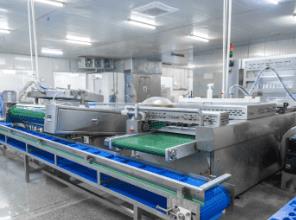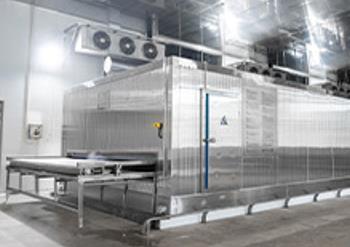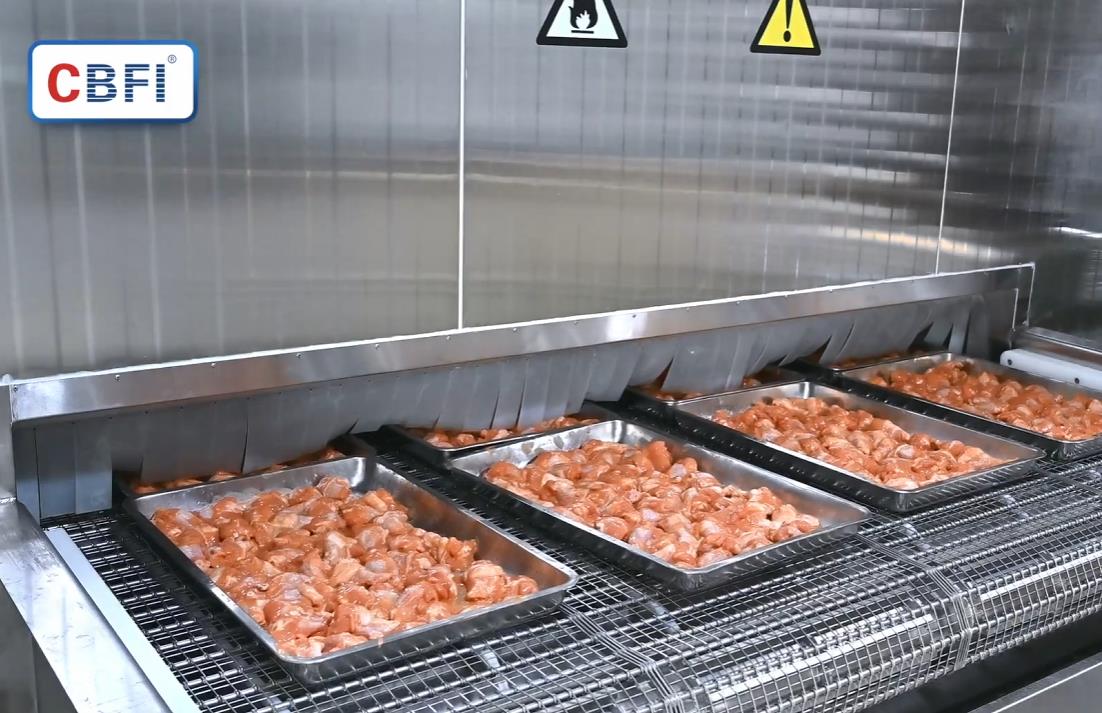آلات التجميد السريع معدات أساسية في تجهيز وحفظ الأغذية، تُستخدم على نطاق واسع في المطاعم والمتاجر الكبرى ومصانع تجهيز الأغذية. يمكنها خفض درجة حرارة الطعام بسرعة إلى -18 درجة مئوية أو أقل، مما يحافظ على عناصره الغذائية ونكهته بفعالية. ومع ذلك، هناك بعض المخاطر المتعلقة بالسلامة عند استخدام هذه الآلات.

يعتمد مبدأ عمل جهاز التجميد السريع على تبخير مواد التبريد في المبخر لامتصاص الحرارة وخفض درجة حرارة الطعام. قبل استخدام جهاز التجميد السريع، يجب على المستخدمين التأكد من فهمهم للوظائف الأساسية للجهاز، بما في ذلك كفاءة التبريد، ونطاق التحكم في درجة الحرارة، وأنواع الطعام المناسبة له. هذا ليس ضروريًا فقط لتحقيق أفضل نتائج تجميد، بل يمنع أيضًا الأعطال المحتملة للمعدات، مثل زيادة استهلاك الطاقة الناتجة عن تراكم غبار المكثف.

يأتي كل جهاز تجميد سريع مزودًا بدليل مستخدم يوضح تعليمات التشغيل، واحتياطات السلامة، واقتراحات الصيانة. من الضروري قراءة هذه التعليمات وفهمها جيدًا قبل تشغيل الجهاز. هذا لن يُحسّن كفاءة التجميد فحسب، بل يُساعد أيضًا على إطالة عمره الافتراضي.

ضع الطعام في الجهاز وفقًا لمواصفاته. تجنب تكديس الطعام بشكل زائد لضمان تدفق الهواء بشكل صحيح وتجميده بشكل متساوٍ.
قلل من فتح باب جهاز التجميد أثناء التشغيل لمنع تقلبات درجة الحرارة الداخلية، والتي يمكن أن تؤثر على جودة الأطعمة المجمدة.
عند تشغيل جهاز التجميد السريع، اضبط درجة حرارة التجميد بشكل مناسب. انخفاض درجة الحرارة بشكل مفرط قد يُسبب فساد الطعام، بينما ارتفاعها بشكل مفرط يُبطئ عملية التجميد ويؤثر على جودته.
أثناء التشغيل، تأكد من توصيل قابس الطاقة بإحكام، لتجنب حدوث قصر كهربائي أو تسرب كهربائي. يمكن استخدام واقي تسرب كهربائي لتعزيز السلامة عند الحاجة.
ومن خلال اتباع هذه الإرشادات، نأمل أن نساعد مستخدمي أجهزة التجميد السريع على تعزيز السلامة والكفاءة التشغيلية، وضمان جودة الأغذية وسلاسة العمليات التجارية.